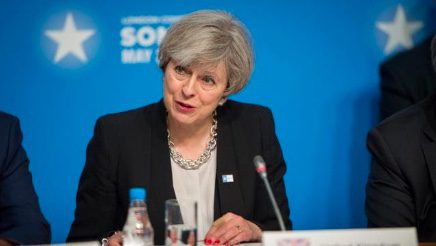
Is migrant worker exploitation the legacy being left by Theresa May?
As Theresa May bids farewell to politics, her legacy is one of controversy, particularly within migrant communities and advocacy circles.
As prime minister May passed the Modern Slavery Act in 2015, hailed at the time as a crowning achievement that offered “world-leading protections” for trafficking survivors. May has also been at front and center of the criticism launched at her own party’s leadership for immigration policies that will essentially abandon trafficking victims.
At the same time, as home secretary, May is the person who introduced changes to the rules governing the Overseas Domestic Worker (ODW) visa in 2012, severely limiting workers’ ability to escape exploitative situations – a situation which persists to this day.
May’s forced labor legacy
Previously, workers could switch employers and eventually settle in the U.K., but after her regulations were implemented, workers were then tied to their initial employers, leaving many vulnerable to abuse.
Franscesca Humi who has supported migrant domestic workers in the U.K. shares,
Combined, these rule changes made it very difficult for employees to escape abuse without being threatened with removal if they overstayed their visa. Few employers will hire a domestic worker midway through a six-month visa, as they have to register these changes with the Home Office to sponsor the worker, which is too complicated for most employers, especially for such a short period of time. But domestic workers cannot be without an employer and remain legally in the UK.
This is what it means to be tied, and the result has been that migrant domestic workers can’t escape the exploitation and abuse because they cannot afford the consequences of protecting themselves, or might not know what options for protection they have.
